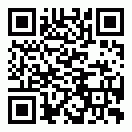
In a series of posts, I am going to introduce the reader to the existence of ISO 17025 and its importance. I am going to introduce it in bite-sized bits for easy digestion. Just like all matters of learning, knowledge is incremental over time and builds upon previous exposure.
So far we have answered the following questions:
- What is ISO 17025?
- Why do we need standards? Why ISO 17025 and policy, procedures and instructions matter.
- Why is ISO 17025 so important to us in forensic science?
- Why should the criminal defense community care about ISO 17025?
- How can ISO 17025 provide a simple method to develop themes to cross-examine experts?
- How can ISO 17025 be used by the criminal law practitioner to help get discovery?
- Can ISO 17025 can answer the question as to who the actual analyst is?
This post we examine how ISO 17025 can help minimize the particular problem of fraudulent credentials of forensic scientists.
It seems as if the forensic science arena is particularly attractive to charlatans.
There are testifying state expert witnesses who over-state their credentials and qualifications. The most shocking of which was probably the infamous Fred Zain who was the subject of our Week 13 Forensic Science Geek of the Week Challenge.

But there are also more subtle forms of downright dishonesty: the “seminar” folks and the “I have been doing this for a long time and therefore must be doing it right” folks. I have blogged on this before
- The Importance of Proper Credentials in Forensic Science where I wrote before:
There is a large demonstrable difference between a true credentialed scientist who has attained a PhD or in the case of a Medical Examiner a MD or in the case of an engineer a PE through a brick and mortar institution versus a machine operator. A machine operator is simply a person who is an expert in employing a checklist: an expert in pushing a button on a machine. This type of person is not an expert in anything beyond that checklist or that button. Whereas, a true credentialed scientist is someone who can explain the why. The why is the key.
- Honorificabilitudinitatibus or a Faux Scientist where I wrote:
A lot of wasted ink is devoted in a faux scientist’s resume to “seminars”. Almost all of these “seminars” do not have a function to test understanding, retention or proficiency in the concepts presented. Most are, at best, attendance based. Some folks honestly read the newspaper during the seminar. Still others FaceBook as the lecturers present. Some even sleep. Some have their agency pay for it and don’t even show up at all.
For any scientist, a resume full of “seminars” that are attendance-based and has a lack of proficiency-based training with tests is a red flag to me. It should be to you too.
On the extreme, our recent histories are replete with individuals who overstate their credentials when even the most very basic exercise of due diligence would perhaps discover individuals such as the recently indicted and convicted Ohio State toxicologist[i].
ISO 17025 requires per Section 5.2 (Personnel) for laboratories to execute due diligence on all testing and reporting personnel, including contractors, to make sure that the technical personnel and their stated credentials are in fact verified, not just simply stated.
[i] James Ferguson was charged with two counts of falsification for lying on the stand during a 1990 murder trial. At the time, James was Franklin County’s chief toxicologist. Ferguson was a key witness in the Licking County trial of Virginia LeFever, who was convicted of poisoning her husband more than two decades ago.


